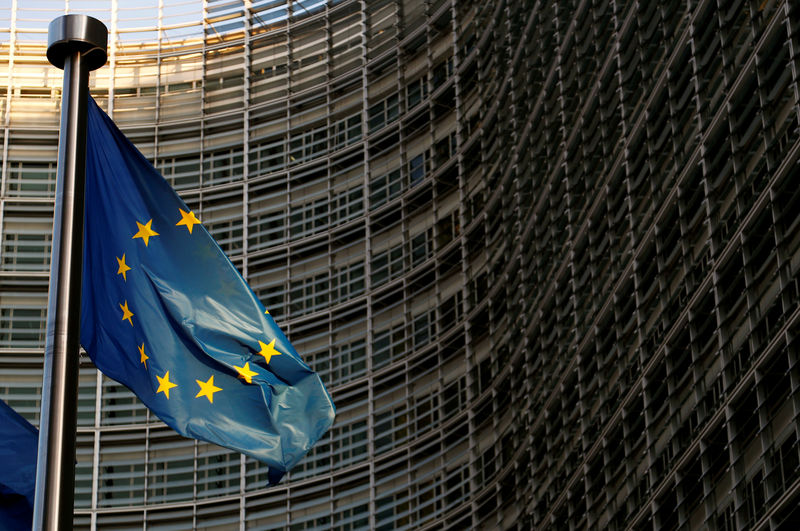 © Reuters. A EU flag is seen outside the EU Commission headquarters in Brussels
© Reuters. A EU flag is seen outside the EU Commission headquarters in BrusselsBRUSSELS (Reuters) – European Union leaders gave themselves nearly a year on Thursday to agree a new long-term budget for the bloc, confirming that hopes of an accord before elections to the EU parliament in May are not realistic.
May had long seemed an improbable target to resolve intense disputes, with Britain, one of the major contributors, due to leave in March, and other rich western members irritated by hostility to EU policies on human rights and immigration among some ex-communist countries, which receive hefty EU subsidies.
In a statement following a debate at a summit in Brussels, the leaders call for more work in the coming months, “with a view to achieving an agreement in the European Council in autumn 2019”.
The Multiannual Financial Framework, or MFF, runs for seven years and will need to be in place in time to replace the current budget program, which ends in December 2020.
The EU budget accounts for about 1 percent of the bloc’s economic output. Some governments and the EU executive favor expanding it but that faces resistance, especially from wealthy states in the north and west which are the main contributors.
Fusion Media or anyone involved with Fusion Media will not accept any liability for loss or damage as a result of reliance on the information including data, quotes, charts and buy/sell signals contained within this website. Please be fully informed regarding the risks and costs associated with trading the financial markets, it is one of the riskiest investment forms possible.
Source: Investing.com




























